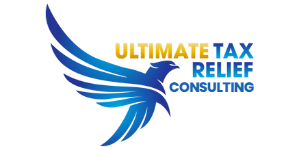Personal Income Tax (PIT) in Nigeria

Personal Income Tax (PIT) is a levy imposed on individuals’ income based on predetermined rates set forth by relevant legislation, such as the PIT Act 2011 (as amended) in Nigeria. Essentially, PIT represents a portion of an individual’s earnings, encompassing salary, business profits, property income, or investment returns, which is obligated to be paid to the government. The specific amount payable varies in proportion to the income earned.
The Federal Inland Revenue Service (FIRS) enforces PIT, applying it to the income of various entities including individuals, corporate bodies, communities, trustees, and executors of settlements. Remittance of PIT is typically facilitated through either the Federal or State Internal Revenue Service (IRS). However, for certain groups like non-residents, members of the Armed Forces, Police, and Officers of the Nigerian Foreign Service, the FIRS administers the tax.
The deadline for filing PIT returns falls on the 31st of March each year, while the deadline for remitting Pay-As-You-Earn (PAYE) taxes is the 10th day of each subsequent month. FIRS mandates that employers must submit returns detailing emoluments and tax deductions from employees for the preceding year no later than the 31st of January annually.
Why should I bother?
Asides argument about morality, there are repercussions defaulters are liable to when they are found guilty of evading tax.
Information on the FIRS website state that:
- A person who fails to file a return shall be liable on conviction to a fine of N5,000 and a further sum of N100 for every day during which the failure continues or imprisonment of six (6) months or both.
- Any employer who fails to file a return, shall be liable on conviction to a penalty of N500,000 for body corporate and N50,000 in the case of individual.
There is also a huge disservice to business or individuals in avoiding this civic duty as many the offenders would miss out on many prospects requiring Tax Clearance Certificate (TCC) to access, as is increasingly becoming the case for businesses operation today.
• The Personal Income Tax Act Cap P8 LFN 2004 (as amended) governs Personal Income Tax.
• This tax applies to individuals, corporate entities, communities, families, and trustees or executors of settlements. Individuals are eligible for a Consolidated Relief Allowance of either N200,000 or 1% of gross income, whichever is higher, plus an additional 20% of gross income.
• Tax rates vary from 7% to 24%, depending on the amount of chargeable income. Individuals must pay a minimum tax of 1% of gross income if their income is below N300,000 annually.
• FCT/States Internal Revenue Service (IRS) handles tax administration for residents, while FIRS oversees non-residents, members of the Armed Forces, Police, and Officers of the Nigerian Foreign Service.
• The deadline for filing tax returns is March 31st each year.
• PAYE remittance is due on the 10th day of each subsequent month.
• Employers must submit returns of emoluments and deducted taxes from employees by January 31st annually.
• Failure to file a return can result in a fine of N5,000 and an additional N100 for each day of non-compliance, or imprisonment for up to six (6) months, or both.
• Employers failing to file returns may face penalties of N500,000 for corporations and N50,000 for individuals upon conviction.
